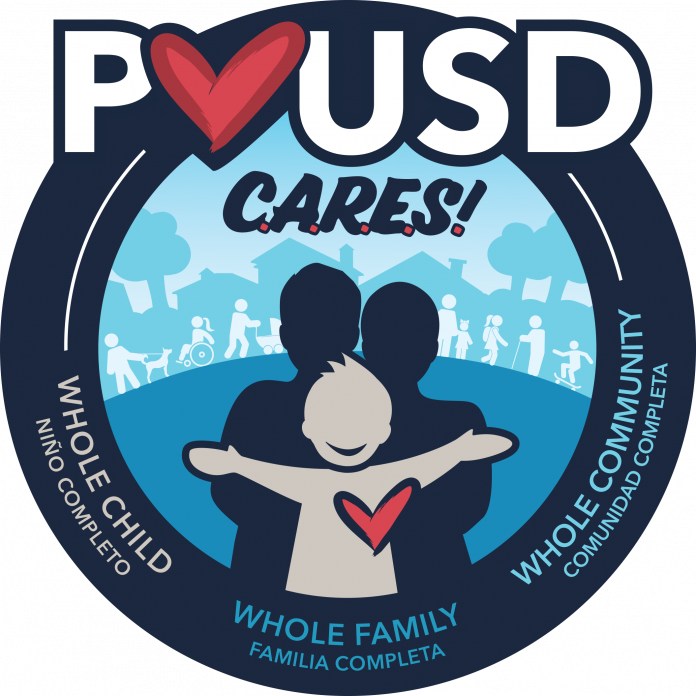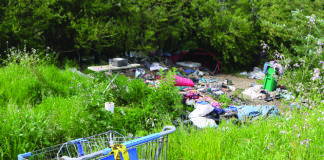We usually discuss issues occurring within the district. However, for this month’s column, we decided to take a different approach and shed some light on our roles as trustees and the process of decision-making. What is it like to take on a publicly elected office? How do we grapple with some of the tough decisions that come before the board? There are, of course, aspects that are unique to individual trustees, but the two of us wanted to share our experiences.
The first part is that the role is humbling. The decisions we make as trustees affect the lives and futures of so many people. Whatever background we come to the board with, we use that experience, but we also have had to broaden our knowledge base. Maybe we’re familiar with education and curriculum development. Great. That helps. But we also need to understand facility maintenance and operations because we need to vote responsibly on those issues.
The good news is that we are not alone in the decisions. The PVUSD Board has a total of seven members, each with a broad range of experience. The challenge is that the Brown Act limits how many other trustees we can speak to about an issue outside of a public meeting. For example, Trustee DeSerpa has mentioned her role as a social worker; Trustee Soto has mentioned his time spent in military service. If there was an issue before the board related to either of those issues, we might want to reach out and get their perspective. However, if they had already spoken to two trustees, they could not talk to any other trustees.
The other related challenge is that for many of us, our experience comes from our regular jobs. Unlike many other elected offices, the role of school board trustee is not a full-time job, nor is it paid beyond a small stipend for expenses. So, most of us usually have full-time work in other areas. That means reading and answering emails, answering phone calls, preparing and reading board documents, research, etc., happens around our other duties. As a result, it can take a little longer than we might like to get all of those tasks accomplished.
Serving in this capacity, while undoubtedly difficult at times, is also very rewarding. The variety and complexity of the issues before the board means that, by necessity, we must develop a broader understanding of the dynamics of our community. It means understanding how interrelated all our systems are, from infrastructure, like cellular service and roads, to our district’s state and federal government funding, to building relationships with community partners. Having the opportunity to be part of that deepens our understanding of how integral a robust public education system is to our greater society.
The connection between our district and the wider community means that we do not take our decisions lightly. We’ve heard a few constituents complain that we come to the meeting with our minds made up. Meetings would be a lot easier if that were true. The reality is that responsible service means that we have to come to the meetings prepared. The board packet is available the Friday before the meeting, and we read through it. We consult with the superintendent, union leaders, parent or students groups, and other stakeholders if it would be helpful to have more background information. Even with that preparation, both of us have certainly had times where someone made a point at a meeting that shifted a decision one way or another.
When you serve as an elected official, it’s not just your voice casting a vote. That vote represents the constituents in your area—and not just the ones who voted for you. Our Board bylaws require that we evaluate what is in the best interest of our area and the district as a whole, even if that might not be in our personal best interests. On controversial issues, it may mean deciding whether to vote according to your conscience or based on the will of the majority in your community. And it means understanding that different people will have different opinions on which is the best approach.
For the two of us, we are three-quarters of the way through our first terms. We are seeing results from our earlier decisions come to fruition. Our board has weathered various controversies, natural disasters, political unrest, and a global pandemic. We have all been through a great deal, and the world carries on regardless. Human beings are not perfect by any stretch, but we have a great capacity for creativity, adaptability, and compassion. Our greatest strength lies in our ability to bring those traits to the forefront, whether in our personal lives or service to the greater community.
A humbling aspect of becoming a school board trustee is realizing how many different considerations go into every decision. This column is PVUSD’s community outreach to clarify how the board arrives at its decisions. Jennifer Holm is President of the PVUSD Board of Trustees and Jennifer Schacher is the Vice-President. Their views are her own and not necessarily those of the Pajaronian. Contact Holm at je***********@***sd.net and Schacher at je***************@***sd.net.












What about all the board members who constantly miss meetings. How many missed are a concern to parents. If you can’t do the job and attend the meetings, you should resign.